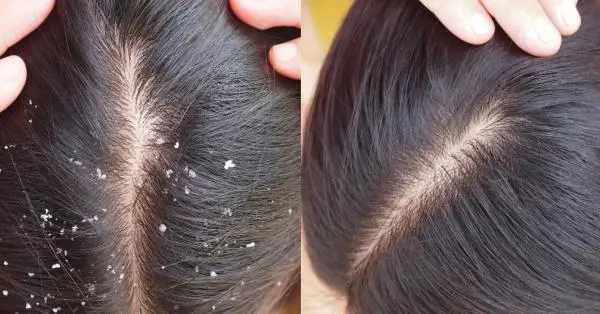Controlling dandruff involves addressing the underlying causes and using targeted treatments to reduce flaking, itching, and inflammation of the scalp. Dandruff can be caused by various factors, including an overgrowth of a yeast-like fungus called Malassezia, dry skin, seborrheic dermatitis, or certain skin conditions. Here are some common approaches for dandruff control:
-
Anti-Dandruff Shampoos:
-
Ingredients: Look for shampoos containing active ingredients such as:
- Zinc pyrithione: Helps reduce the growth of Malassezia.
- Ketoconazole: Antifungal agent effective against Malassezia.
- Salicylic acid: Helps exfoliate dead skin cells.
- Selenium sulfide: Reduces cell turnover and fights Malassezia.
- Coal tar: Slows skin cell turnover and reduces itching and inflammation.
-
How to Use: Follow the instructions on the shampoo bottle. In general, use regularly (usually 2-3 times a week) and leave the shampoo on the scalp for a few minutes before rinsing.
-
-
Scalp Treatments and Oils:
- Tea Tree Oil: Has natural antifungal properties. Dilute a few drops in a carrier oil and apply to the scalp.
- Coconut Oil: Can help moisturize the scalp and reduce flakiness. Apply warm coconut oil to the scalp, leave it on for a few hours or overnight, and then shampoo.
-
Regular Hair Washing:
- Wash your hair regularly to prevent the buildup of oil and dead skin cells. However, avoid overwashing, as it can strip the scalp of natural oils and potentially worsen dandruff.
-
Avoiding Certain Hair Products:
- Some hair products, especially those containing harsh chemicals, can contribute to dryness and irritation. Choose gentle, sulfate-free shampoos and conditioners.
-
Diet and Hydration:
- A healthy diet and proper hydration can contribute to overall skin health. Omega-3 fatty acids found in fish, flaxseeds, and walnuts may have anti-inflammatory effects.
-
Managing Stress:
- Stress can contribute to various skin conditions, including dandruff. Practice stress-reducing techniques such as meditation, yoga, or deep breathing.
-
Seeking Professional Advice:
- If over-the-counter treatments don't work, or if the dandruff is severe, it's advisable to consult with a dermatologist. They can identify the specific cause and recommend appropriate prescription-strength treatments.
-
Prescription Medications:
- In cases of severe dandruff or underlying skin conditions, a dermatologist may prescribe medicated shampoos, topical steroids, or antifungal medications.
-
Avoiding Triggers:
- Identify and avoid triggers that worsen your dandruff, such as certain hair care products, environmental factors, or dietary choices.
-
Consistency is Key:
- Dandruff may not be completely cured, but consistent management and the right products can keep it under control.
It's important to note that individual responses to dandruff treatments vary, and what works for one person may not work for another. If dandruff persists or worsens despite using over-the-counter products, seeking advice from a healthcare professional is recommended.



